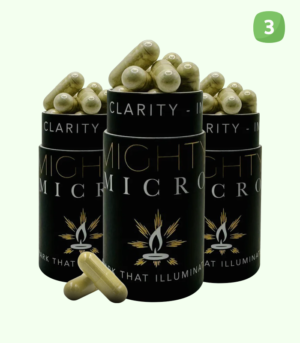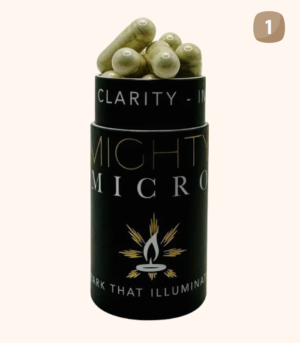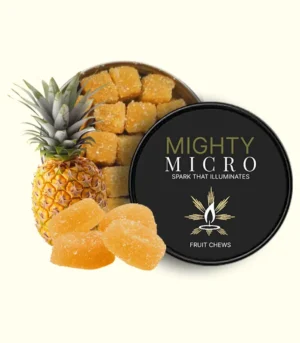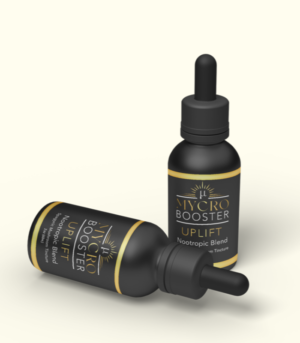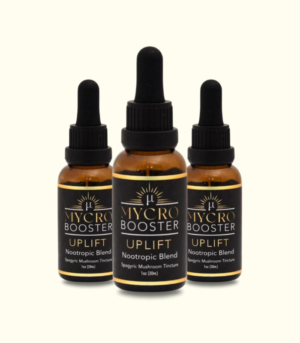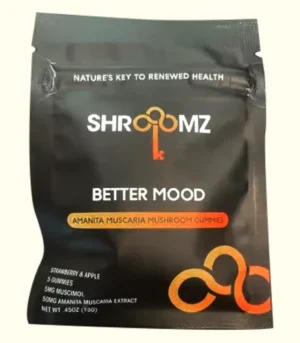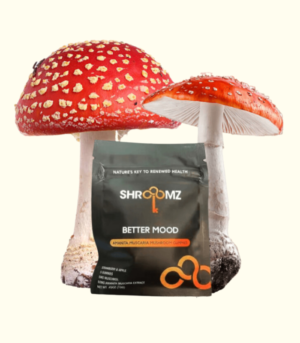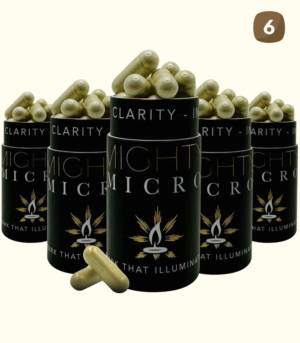Mushrooms offer a wealth of health benefits, making them a valuable addition to a healthy diet. They are packed with antioxidants, providing up to 50% of the daily recommended intake, and are a rich source of vitamin D, with some varieties offering up to 100% of the daily recommended intake per serving. Additionally, mushrooms have anti-inflammatory properties, which may reduce the risk of chronic diseases such as heart disease, diabetes, and certain types of cancer.
Daily consumption of mushrooms has been shown to reduce the risk of cancer by 45%. Furthermore, mushrooms also have immune-boosting properties, increasing white blood cell count and activating natural killer cells, which help to fight off infection and disease. Overall, incorporating mushrooms into your diet can have a significant impact on overall health and well-being.
What are the Mushroom Benefits?
Mushrooms offer a wide range of health benefits, making them a valuable addition to any diet. Mushrooms are not only versatile in cooking but also a powerhouse of nutrients that contribute to overall health and well-being. Here are seven key benefits:
1. Boost Immune System
Mushrooms are rich in antioxidants that combat chronic inflammation, which is linked to heart disease, cancer, and other conditions. These antioxidants protect cells from damage and activate immune substances that enhance infection defense and may reduce tumor growth. Some studies even suggest a link between higher mushroom consumption and a lower risk of breast cancer.
2. Lower Blood Pressure
Mushrooms are a great source of potassium, an essential mineral that helps regulate blood pressure. Consuming mushrooms may reduce the risk of hypertension and cardiovascular diseases, especially for individuals with low potassium intake.
3. Support Weight Loss
Replacing part of your meat consumption with mushrooms can aid weight loss when paired with exercise and healthy habits. Mushrooms are flavorful yet low in sodium and calories, making them ideal for reducing salt intake and enhancing the nutritional value of meals.
4. Provide Vitamin D
Certain mushrooms exposed to UV light are rich in vitamin D, essential for strong bones and muscle health. UV-treated mushrooms can supply up to 100% of your daily vitamin D needs, making them a convenient plant-based option.
5. Protect Brain Health
Mushrooms may support cognitive function and protect against conditions like mild cognitive impairment (MCI), Alzheimer’s, and Parkinson’s disease. Their polyphenols and antioxidants are particularly beneficial for brain health, with studies showing promising results for older adults.
6. Maintain Heart Health
Mushrooms are heart-healthy, thanks to their ability to prevent plaque buildup in blood vessels and reduce cholesterol levels. They’re a flavorful and low-calorie alternative to red meat, offering similar taste and texture without the added fat and sodium.
7. Improve Gut Health
Substances in mushrooms promote a balanced gut microbiome by encouraging the growth of beneficial bacteria. A healthy gut supports digestion and immunity, ensuring that the nutrients from food are efficiently absorbed and utilized.
What are the Types of Mushrooms?
Mushrooms come in various types, each offering unique flavors, textures, and nutritional benefits. Here are some of the most popular types:
- Button Mushrooms (White Mushrooms)
- Appearance: Small, white, and round with a smooth cap.
- Flavor: Mild and slightly earthy.
- Uses: Common in salads, soups, and pizzas. Versatile and widely available.
- Cremini Mushrooms (Baby Bella)
- Appearance: Brown, with a firmer texture than button mushrooms.
- Flavor: Richer, earthier flavor.
- Uses: Great for sautéing, stews, and pasta dishes.
- Portobello Mushrooms
- Appearance: Large, with a dark brown cap and a meaty texture.
- Flavor: Bold and savory.
- Uses: Often used as a meat substitute in burgers or grilled dishes.
- Shiitake Mushrooms
- Appearance: Dark brown with a distinctive umbrella-shaped cap.
- Flavor: Strong, smoky, and umami.
- Uses: Popular in Asian cuisine, especially in soups, stir-fries, and broths.
- Oyster Mushrooms
- Appearance: White to pinkish, fan-shaped with a delicate texture.
- Flavor: Mild and slightly sweet.
- Uses: Ideal for stir-frying, soups, and adding to pasta dishes.
- Enoki Mushrooms
- Appearance: Small, white, and long with tiny caps.
- Flavor: Mild and crunchy.
- Uses: Great in salads, soups, and sushi rolls.
- Lion’s Mane Mushrooms
- Appearance: White and spiky, resembling a lion’s mane.
- Flavor: Mild, with a seafood-like texture.
- Uses: Often used in vegan cooking as a meat substitute.
- Chanterelle Mushrooms
- Appearance: Yellow to orange, trumpet-shaped with a smooth texture.
- Flavor: Fruity, slightly peppery.
- Uses: Best in soups, sauces, or paired with eggs.
- Maitake Mushrooms (Hen of the Woods)
- Appearance: Clustered, frilled, and ruffled.
- Flavor: Earthy and rich.
- Uses: Commonly used in soups, stir-fries, and as a meat substitute.
- Porcini Mushrooms
- Appearance: Thick stems and brown caps.
- Flavor: Nutty and woodsy.
- Uses: Ideal for Italian dishes, especially risotto, pasta, and sauces.
Mushroom Nutrition: What Makes Mushrooms So Beneficial?
Mushrooms are a nutritional powerhouse, offering a unique blend of vitamins, minerals, antioxidants, and other beneficial compounds while being low in calories. Here’s a breakdown of their key nutritional benefits:
1. Low in Calories and Fat
Mushrooms are naturally low in calories, fat, and cholesterol, making them an excellent addition to a balanced diet. A single cup of raw mushrooms contains roughly 15–20 calories, making them ideal for weight management.
2. High in Fiber
They provide dietary fiber, which supports healthy digestion, regulates blood sugar levels, and promotes a feeling of fullness. Some varieties, like shiitake and oyster mushrooms, are particularly high in fiber.
3. Rich in Antioxidants
Mushrooms contain antioxidants such as selenium and ergothioneine, which help fight oxidative stress, reduce inflammation, and protect against chronic diseases like cancer and heart disease.
4. Excellent Source of B Vitamins
Mushrooms are packed with B vitamins like riboflavin (B2), niacin (B3), and pantothenic acid (B5). These vitamins are essential for energy production, brain function, and maintaining healthy skin and red blood cells.
5. Vitamin D Content
Certain mushrooms exposed to sunlight or UV light are rich in vitamin D, a nutrient crucial for bone health, immune function, and overall well-being. These varieties can supply up to 100% of your daily vitamin D needs.
6. Packed with Minerals
Mushrooms are a good source of essential minerals such as:
- Potassium: Helps regulate blood pressure and maintain heart health.
- Copper: Supports red blood cell production and immune function.
- Iron: Aids in oxygen transport and energy production.
7. Protein-Rich
While not as high in protein as meat, mushrooms still provide a modest amount, contributing to muscle repair and growth. They are particularly valuable for plant-based diets.
8. Low in Sodium
Mushrooms are naturally low in sodium, making them a heart-healthy food choice. Their umami flavor can enhance dishes, reducing the need for added salt.
9. Prebiotics for Gut Health
Mushrooms contain prebiotics, which promote the growth of beneficial gut bacteria. This supports digestive health, immune function, and overall well-being.
10. Adaptogens in Certain Varieties
Some mushrooms, like reishi and lion’s mane, contain adaptogens that may help reduce stress, improve focus, and enhance overall resilience to mental and physical challenges.
Buy Magic Mushroom Online
Nutrients Per Serving: What Makes Mushrooms Nutritious?
Mushrooms are nutrient-dense foods that provide a variety of essential vitamins, minerals, and beneficial compounds in every serving. A 1-cup serving (about 96 grams) of raw mushrooms provides:
Calories: 15–20
Protein: 2 grams
Fiber: 1 gram
B Vitamins: Riboflavin (B2), Niacin (B3), Pantothenic Acid (B5)
Vitamin D: Up to 100% of daily needs (if UV-treated)
Minerals: 300 mg potassium, copper, iron, and selenium
Antioxidants: Ergothioneine and glutathione
Low in Sodium: Less than 5 mg
Fat and Cholesterol: Virtually none
Are mushrooms safe?
Yes, mushrooms are generally safe to eat, but there are a few important considerations to ensure safety:
- Edible vs. Poisonous Mushrooms
- While many mushrooms are safe and nutritious, some wild mushrooms are toxic and can be harmful or even deadly. It’s essential to only consume mushrooms that are confirmed to be edible, either purchased from a trusted store or identified by an expert if foraged from the wild.
- Allergic Reactions
- Some individuals may have allergies to certain types of mushrooms. Common symptoms can include itching, swelling, or digestive discomfort. If you suspect an allergy, it’s best to avoid mushrooms or consult a healthcare professional.
- Proper Handling and Storage
- Mushrooms should be stored properly in a cool, dry place and consumed fresh, as they can spoil quickly. Cooking them thoroughly helps reduce the risk of foodborne illness and enhances their digestibility.
- Avoiding Contaminants
- Like all produce, mushrooms should be washed thoroughly to remove any dirt or potential pesticides. Organic mushrooms may offer an extra layer of assurance regarding chemical residues.
How Much Mushrooms Should You Consume Daily?
It’s recommended to consume 1 to 2 servings of mushrooms per day, with one serving being about 1 cup (96 grams) of raw mushrooms. This provides a good amount of nutrients like fiber, antioxidants, and vitamins while being low in calories. Eating mushrooms regularly can support immunity, heart health, and digestive function.
What Happens in the Case of ‘Mushroom Overdose’?
Mushroom overdose is rare, especially with edible varieties, but consuming excessive amounts can lead to some digestive discomfort. Symptoms may include:
- Upset stomach (nausea, vomiting, diarrhea)
- Bloating or gas
- Digestive distress due to high fiber content
For wild mushrooms, which may be toxic, overdose can lead to severe reactions like liver damage, kidney failure, or even death, depending on the species. It’s crucial to only consume mushrooms from reliable sources. If you suspect poisoning or overdose, seek medical attention immediately. For edible mushrooms, moderation is key to avoiding digestive issues.
Conclusion
Mushrooms are a nutritional powerhouse, offering a wide array of health benefits. From boosting immune function and supporting heart health to enhancing brain function and promoting gut health, they are versatile and low-calorie food. Rich in essential vitamins, minerals, and antioxidants, mushrooms can play a vital role in maintaining overall well-being. Whether incorporated into your daily diet for their nutrient density or used for their medicinal properties, mushrooms offer numerous advantages for both your body and mind. Just remember to consume them in moderation and ensure they are sourced from reputable places to fully enjoy their health benefits.
FAQs
What are the health benefits of eating mushrooms?
Mushrooms are rich in essential nutrients, including vitamins (B vitamins, vitamin D), minerals (potassium, copper), and antioxidants. They can boost immunity, improve heart health, enhance brain function, aid digestion, and support weight management. Their low-calorie, high-fiber content makes them a great addition to a balanced diet.
Can mushrooms help boost your immune system?
Yes, mushrooms contain antioxidants like selenium and ergothioneine, which help reduce inflammation and protect the body from oxidative stress. Certain compounds in mushrooms also support immune function, enhancing the body’s ability to fight infections and even potentially reducing the risk of chronic diseases like cancer.
How do mushrooms improve heart health?
Mushrooms are low in calories, fat, and sodium, making them heart-healthy. They also provide potassium, which helps regulate blood pressure. By replacing higher-fat meats with mushrooms, you can lower your cholesterol levels, support heart function, and maintain a healthy blood pressure.
Can mushrooms support brain health?
Yes, certain types of mushrooms, like lion’s mane, are known for their potential to enhance cognitive function. Mushrooms contain compounds that may protect against neurodegenerative diseases, improve memory, and reduce the risk of conditions like Alzheimer’s and Parkinson’s.
Are mushrooms beneficial for weight loss?
Mushrooms are low in calories but high in fiber, which helps promote a feeling of fullness. Including mushrooms in your diet can help reduce overall calorie intake and support weight management by providing a satisfying, nutritious, and low-calorie alternative to higher-calorie foods.
Do mushrooms help with digestive health?
Yes, mushrooms contain prebiotics, which fuel the growth of healthy gut bacteria. This can improve digestion and overall gut health, enhancing nutrient absorption and supporting a balanced microbiome.
Can mushrooms help with vitamin D deficiency?
Certain mushrooms, especially those exposed to UV light, are rich in vitamin D, which is essential for bone health and immune function. Some varieties can provide up to 100% of your daily vitamin D needs, making them a great plant-based source of this nutrient.
Are mushrooms safe to eat every day?
Yes, mushrooms are generally safe to eat daily, provided they are sourced from a reputable supplier. They offer a range of health benefits and are low in calories, making them an excellent addition to your diet. However, as with any food, it’s important to consume them in moderation and ensure proper handling and storage.
What types of mushrooms are best for health benefits?
Popular mushrooms known for their health benefits include shiitake, maitake, reishi, lion’s mane, and oyster mushrooms. These varieties are known for their immune-boosting properties, brain health support, and other medicinal benefits.
Can mushrooms help with stress management?
Some mushrooms, like reishi and lion’s mane, are considered adaptogens. They help the body adapt to stress and improve focus and mental clarity, potentially reducing anxiety and enhancing overall resilience to mental and physical challenges.


